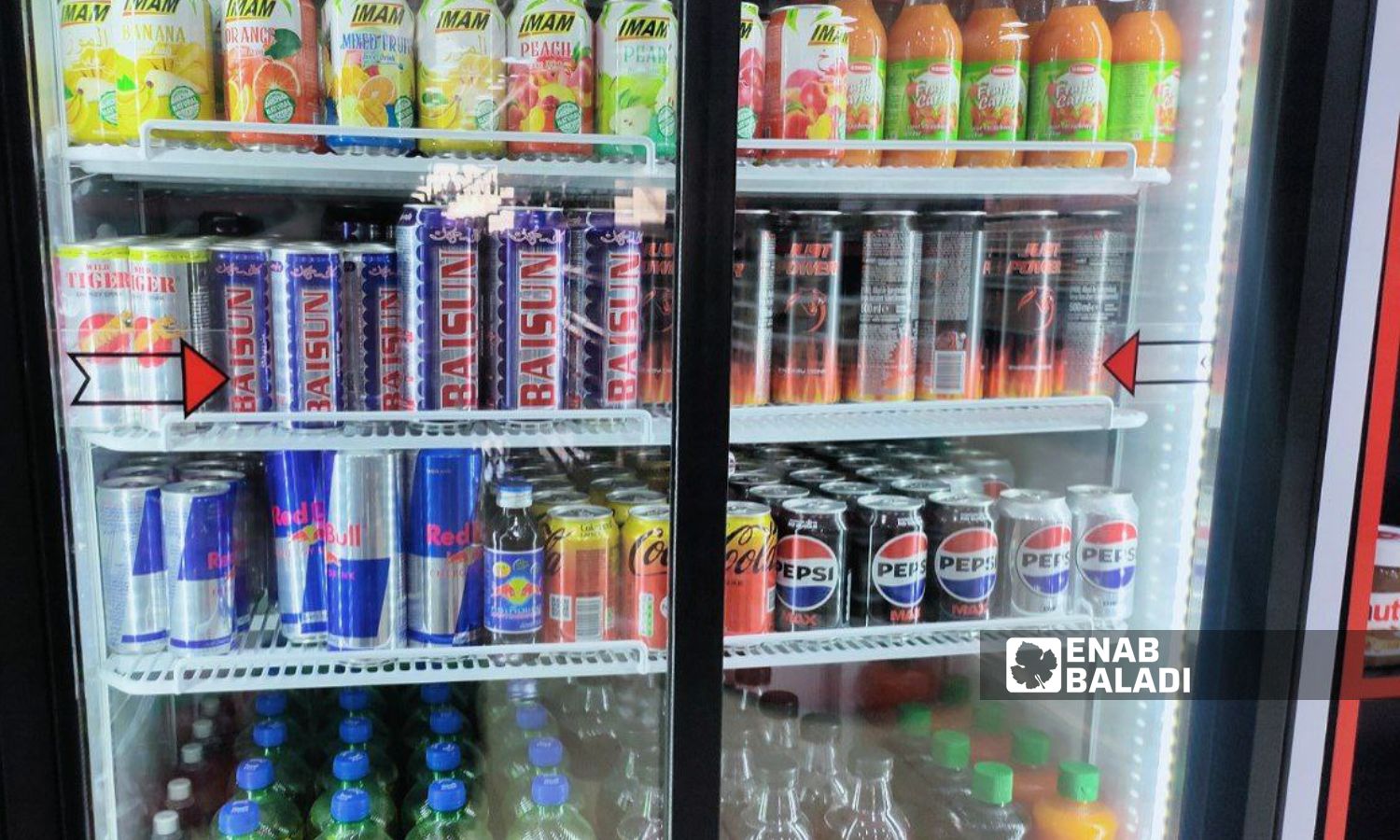



Al-Hasakah – Majd al-Salem
Energy drinks of various sizes, shapes, and manufacturers are widely available in the shops of Qamishli city in northeastern Syria. These drinks have become extremely popular among consumers, becoming a staple in the daily routine of young people.
Energy drinks are sold in all restaurants, parks, and kiosks scattered throughout public places such as gardens without any age restriction controls.
Ahmad Kalo, a supermarket owner in Qamishli, said that the demand for energy drinks is high, with a noticeable increase in sales. The quantities he stocks in his store usually sell out within a day or two.
The seller told Enab Baladi that energy drinks are particularly popular among young people and teenagers, who come daily to buy them, with some purchasing multiple cans per day.
Ahmad (50 years old) mentioned that students, athletes, and even some long-hour workers also find these drinks beneficial, as they have become an essential part of their lifestyle and daily routine.
Interestingly, according to Ahmad, teenagers often buy energy drinks along with cigarette packs, and the spread of hookah use has also contributed to increased demand for energy drinks.
According to an Enab Baladi survey of some shops in Qamishli, the prices of energy drinks range between 5,000 and 10,000 Syrian pounds (35 to 70 US cents) depending on the can size and manufacturer, with most being imported from Turkey or the Syrian regime-controlled areas.
The purchase of energy drinks is not limited to young people; some older men and even the elderly have also developed a taste for these drinks.
Ms. Jouri (who requested anonymity for social reasons) told Enab Baladi that her husband (68 years old) consumes energy drinks despite having heart conditions, ignoring promises made to her and their doctor to stop drinking them.
She mentioned that the local shop owner in their neighborhood in Qamishli informed her that her husband frequently visits to purchase energy drinks, advising her to encourage him to reduce his consumption given their close relationship.
There is no precise scientific definition for an energy drink, but it is generally understood to be a beverage that provides a boost of energy to consumers, not without health risks.
Enab Baladi reached out to a distributor of a popular energy drink across al-Hasakah to inquire if there were any specific health recommendations or guidelines for consuming the energy drink they promote, but received no response.
According to Enab Baladi‘s observations, shop owners in Qamishli sell these drinks without specific age restrictions to people of all ages, including children under ten.
Harith al-Blaibel, an engineer with a master’s degree in food sciences, told Enab Baladi that while energy drinks offer a temporary sense of refreshment and focus due to their high caffeine and sugar content, they carry several potential risks.
Al-Blaibel (from al-Hasakah and residing in Turkey) added that the potential risks include increased heart rate, high blood pressure, sleep disturbances, and insomnia due to caffeine, leading to anxiety and stress, in addition to potential addiction to these drinks.
He mentioned that there are reports of rare but serious cases including cardiac swelling, seizures, and heart attacks, particularly among individuals with pre-existing health conditions.
It is important to carefully consider before consuming energy drinks and to moderate their consumption, especially for individuals with certain health conditions, according to al-Blaibel, urging caution due to their high caffeine and sugar content as there are recommended limits not to be exceeded.
Adult caffeine intake should not exceed 400 milligrams per day, equivalent to about four cups of coffee. Most energy drinks contain between 80 to 300 milligrams of caffeine per can (depending on the size and brand), al-Blaibel noted.
He emphasized the necessity of avoiding energy drinks for those under 18 (adolescents) due to their impact on growth, and for pregnant women.
if you think the article contain wrong information or you have additional details Send Correction